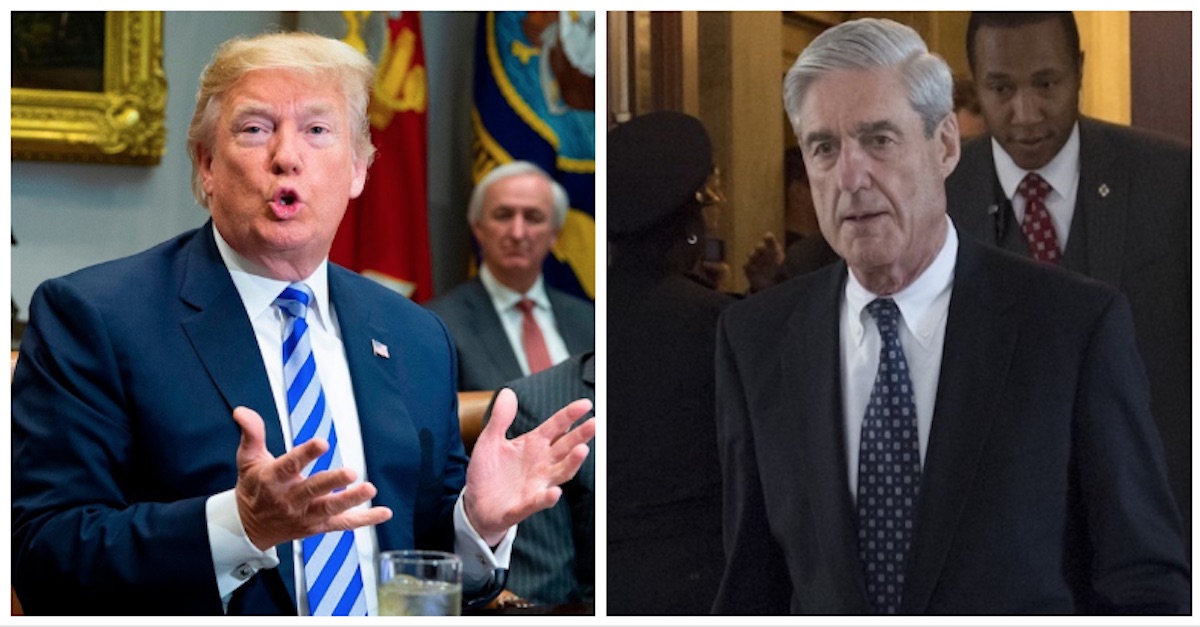
A federal court on Tuesday ruled that the Department of Justice (DOJ) must release a tranche of secret grand jury materials sourced from the Russiagate investigation by former special counsel Robert Mueller. Those materials have been long-coveted by Democrats who have said they could lead to a second impeachment of the 45th president.
U.S. Circuit Judge Judith Rogers authored the decision—which was joined by Judge Thomas Griffith. Judge Neomi Rao authored the dissent.
“The courts cannot tell the House how to conduct its impeachment investigation or what lines of inquiry to pursue, or how to prosecute its case before the Senate,” Judge Rogers noted—in reference to the plaintiffs and victors in the ongoing legal spat between House Democrats Attorney General William Barr.
The House Judiciary Committee has argued for several months that the unredacted Mueller materials—spanning nearly 500 pages—should be released to congressional investigators who planned to use those documents in order to potentially make a case for impeaching President Donald Trump.
The legal battle, however, was largely cabined within a picayune discussion of what case law in the D.C. Circuit determined was a “judicial proceeding” under the U.S. Constitution.
DOJ argued for a very limited understanding of that term—claiming that impeachment hearings and trials didn’t qualify and that releasing the materials would irreparably harm the agency’s legal interests. Democrats on the other hand said—and the court ultimately agreed—that precedent held the term sustained a fairly broad definition.
As Law&Crime previously reported, a lower court in the District of Columbia previously reached more or less the same conclusion—with the exact number of pages.
U.S. District Judge Beryl A. Howell savaged the White House and DOJ for their stonewalling efforts last October—calling out White House Counsel Pat Cipollone and mocking Barr’s staff attorneys for failing to understand how precedent actually works.
To wit, DOJ argued that an impeachment proceeding was not a judicial proceeding but failed to account for their prior argument—also made under President Trump—in the prior year that an impeachment proceeding was considered a judicial proceeding under a precedent/definition established by legendary D.C. Circuit Judge Learned Hand in 1958.
Whoops. And whoops redux.
“The constitutional text confirms that a Senate impeachment trial is a judicial proceeding,” Judge Rogers continued. “The term ‘judicial proceeding’ has long and repeatedly been interpreted broadly.”
After determining that impeachment proceedings fit the bill, the three-judge panel easily determined House Democrats were entitled to the documents—staking the decision on the Congress’s great power over all matters related to impeachment.
“Courts must take care not to second-guess the manner in which the House plans to proceed with its impeachment investigation or interfere with the House’s sole power of impeachment,” the decision notes.
“The Committee states that it needs the unredacted material,” Rogers reasoned elsewhere in her ruling before dispatching concerns that Democrats were on a fishing expedition or otherwise acting with nefarious motives. “The district court had no reason to question the Committee’s representation.”
The potential implications of the ruling are substantial. Democrats have long maintained that the Mueller-focused investigation and legal battle was separate and distinct from their failed Ukraine-based impeachment effort—previously argued before the lower court that the contents of Mueller’s secret grand jury materials may very well lead them toward a second round of impeachment hearings.
There was, of course, some discord from Trump’s handpicked Brett Kavanaugh replacement on the D.C. Circuit.
Rao’s stinging dissent complained that the time for Democratic relief had simply passed.
“A reasonable observer might wonder why we are deciding this case at this time. After all, the Committee sought these materials preliminary to an impeachment proceeding and the Senate impeachment trial has concluded. Why is this controversy not moot?” Rao asked rhetorically. “The majority simply turns a blind eye to these very public events.”
Read the full 75-page court ruling below:
Mueller Grand Jury Materials Decision by Law&Crime on Scribd
[[Images via Alex Edelman-Pool/Getty Images, Saul Loeb/AFP/Getty Images]